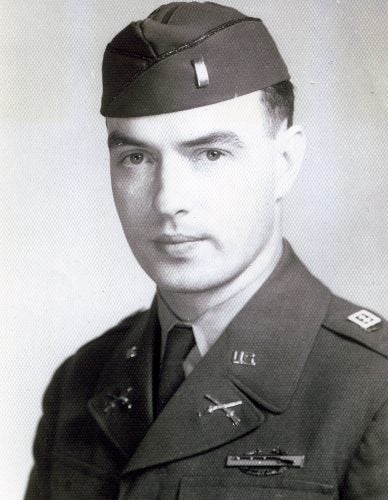- Lieutenant Colonel
- WW II & Korea
Biography
Lieutenant Colonel Phillip J. Gilchrist was a native of Providence, Rhode Island and a 1944 graduate of Classical High School. He was an outstanding scholar and football player in high school and was elected co-captain in his senior year. Immediately following his high school, Phillip enlisted in the U.S. Navy at age 17. During World War II, he served aboard the USS Turandot, AKA-47, a combat support vessel. At the completion of the war, he enrolled in the Rhode Island State College on the G.I. Bill where he enrolled in the Army ROTC program. In 1950, he graduated with a BS Degree in Management and was commissioned as a Second Lieutenant of Infantry.
Already a war hardened veteran, Lieutenant Gilchrist served as a Platoon Leader in Company G, 2d Battalion, 27th Infantry Regiment, 25th Infantry Division during the Korean War. His heroics are chronicled in David H. Hackworth’s bestselling memoir About Face. On 30 March 1951, 1LT Gilchrist distinguished himself by extraordinary heroism in combat against Chinese forces near the town of Yong-ju, South Korea. On that date, Lieutenant Gilchrist was leading his platoon toward their Objective Logan, a high mountain peak occupied by a numerically superior enemy force.
As he neared the top of this rugged mountain peak, 1LT Gilchrist single-handedly engaged seven enemy soldiers and killed them, enabling his men to move forward to the crest and take the position. Before the men could be properly deployed, a strong enemy counterattack was launched. Exposing himself to the intense enemy fire, 1LT Gilchrist skillfully directed the defensive actions of his platoon, and the enemy was repulsed. Although painfully wounded during this action, he refused medical aid and continued to direct the fire of his men, successfully repelling two more enemy counterattacks.
When orders were received to withdraw, 1LT Gilchrist remained in position with a small group of his men to conduct a delaying action until the wounded soldiers were evacuated. They covered the withdrawal of the remainder of the group. David Hackworth remembers Phil Gilchrist as a “soldier’s soldier.” He was from the old World War II school and always led by the old fashion “FOLLOW ME” brand of leadership. His style saved many lives, and we all loved him for it.
For his actions in combat, First Lieutenant Gilchrist was awarded the Distinguished Service Cross for extraordinary heroism, an award second only to the Congressional Medal of Honor. He also earned the Combat Infantry Badge, Bronze Star, Purple Heart, Legion of Merit and Rhode Island Cross. He never boasted that he was one of Rhode Island’s most-decorated veterans.
After Korea, he was sent to Germany where one of his assignments was to interview former Wehrmacht officers about their experiences on the Eastern Front during World War II. The purpose of these interviews was to get first-hand knowledge from combat personnel as to Soviet tactics, capabilities and training. Subsequently, LTC Gilchrist became Professor of Military Science at St. Lawrence University in Canton, New York. Later in his 18-year military career, LTC Gilchrist was assigned to the Pentagon.
Following his retirement from the Army in 1968, he taught contemporary American History at Cranston West High School and subsequently taught Economics and History of Western Civilization at the Community College of Rhode Island. He earned two Masters Degrees in Political Science and History from the University of Maryland. He was active in the Boy Scouts, the Veterans of Foreign Wars and the Retired Officers Association.
Lieutenant Colonel Gilchrist spent his entire life serving his community and nation during peace and war. His exemplary devotion to duty, personal bravery and outstanding leadership is in the highest traditions of the military service and reflect great credit upon himself, his family and the University of Rhode Island.
Lieutenant Colonel Phillip J. Gilchrist died on 28 August 1999. He was buried in the Rhode Island Veteran’s Cemetery in Exeter, Rhode Island with full military honors.
Education
1950

